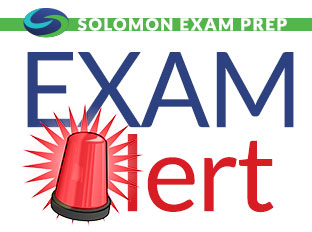The SEC has approved new FINRA rules governing communication with the public. The rules will take effect February 4, 2013. While the rules are generally based on current communications rules, several significant changes will be made. Those changes include:
Communication Categories
-The six current types of communications will be replaced with three types: institutional communication, retail communication, and correspondence.
-Institutional communication is communication that is only distributed to institutional investors. In order for a communication to count as institutional communication, the firm must not have “reason to believe” that the communication will be forwarded to non-institutional investors (“retail investors”).
-Retail communication consists of communications to more than 25 non-institutional investors within a 30 calendar day period.
-Correspondence includes communications to 25 or fewer non-institutional investors.
-Replacements for current rules may apply to different categories of communication than the present rules do. For full details on which rules will change, see the FINRA Notice.
Approval, Review, and Recordkeeping Requirements
-There are modified standards for pre-approval of communication by principals.
-Series 16 supervisory analysts may approve research that is not a “research report” if they have technical expertise in the product area and the product does not require licenses they do not have.
-The following are exempted from pre-approval: research/analysis on certain broad, limited topics; forum posts; and communications that do not make recommendations or promote a product or service of the firm.
-FINRA may grant an exemption from pre-approval requirements for good cause.
-Any communication filed with the Advertising Regulation Department must be pre-approved.
-Records must include information on the sources of tables, graphs, and charts.
-If a communication wasn’t pre-approved, records must include the name of the person who prepared and distributed the communication.
Filing Requirements and Review Procedures
-The one-year pre-filing period for new firms will start on the date the firm’s FINRA membership becomes effective. Under the current rule, the period starts when a firm first files an advertisement with FINRA.
-The Advertising Regulation Department may require a firm to file any type or types of communications prior to use.
-The pre-use filing requirement is revised to include retail communications regarding investment companies that include self-created rankings, retail communications concerning securities futures, and retail communications that include bond mutual fund volatility ratings.
-All retail communications concerning closed-end registered investment companies, registered CMOs, and derivatives must be filed with FINRA within 10 business days of first use.
-A present requirement to file advertisements concerning government securities within 10 business days of first use has been eliminated.
-An exclusion from filing exists for:
–Retail communication based on a template that has been filed with FINRA, if the only changes are updating statistical or other “non-narrative” information;
–Retail communications that do not make recommendations or promote a product or service of the firm;
–Online forum posts; and
–Press releases issued by closed-end investment companies listed on the NYSE that are subject to the “immediate release policy.”
-Free writing prospectuses that are prepared by broker-dealers and that will be widely disseminated must be filed with FINRA.
-FINRA may grant an exemption from the concurrent-with-use filing requirement (requirement that states a communication must be filed within 10 business days of first use) for good cause.
Content Standards
-FINRA has added new specifications for illustrations that compare tax-deferred investments with taxable compounding investments. These requirements include using actual federal income tax rates, making a fair comparison, and making appropriate disclosures – the full list of requirements may be found on pages 17-18 of the FINRA Notice.
-A firm must disclose that a testimonial is a paid testimonial if more than $100 is paid for a testimonial (the current rule requires disclosure if more than a “nominal sum” is paid).
-A retail communication that contains a recommendation of securities must disclose if the firm or any associated person involving in preparing the communication has a non-nominal financial interest in the issuer of the security. This is in place of a prior requirement that required disclosure if any of the firm’s officers or partners had a non-nominal financial interest in the issuer.
-Firms are now subject to similar requirements as investment advisers in regards to retail communications about past recommendations – generally specific past recommendations are not allowed. Lists of past recommendations that cover at least one year are acceptable if they include all recommendations for a given type, kind, or classification of security.
Public Appearances
-Public appearances will no longer require pre-approval or filing with FINRA. They still require a reasonable basis for recommendations, proper disclosure, and written supervisory procedures.
Guildlines for Communications With the Public Regarding Security Futures
-Communications about securities futures must be accompanied or preceded by a risk disclosure document if it contains the names of specific securities.
Source: FINRA Regulatory Notice 12-29
This alert applies to the Series 6, Series 62, Series 26, Series 24, Series 7, Series 79, Series 99, and Series 82.

